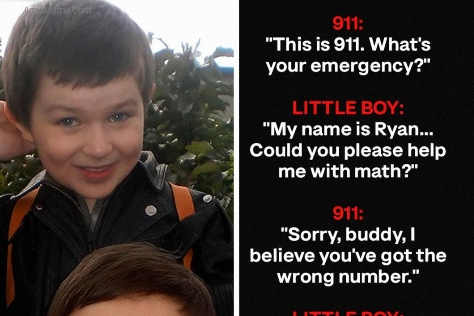Eight-year-old Ryan perched at the kitchen table, gazing at a math puzzle that seemed utterly baffling. With no grown-up present in the house and his schoolwork due the following day, he recalled his mom’s guidance: “Whenever you need help, call 911.” Trusting he was adhering to her instruction, Ryan punched in the emergency digits and courteously requested support for his assignment. The operator felt startled, yet upon hearing Ryan say he remained alone well into the evening, worry swiftly overtook bewilderment.
Recognizing a potential issue, the dispatcher maintained composure and held Ryan on the phone while dispatching officers to ensure his well-being. Upon the police reaching the scene, they discovered Ryan had stayed by himself since classes let out, and his mother failed to respond to calls. Concerned about her welfare, officers promptly launched a search and pinpointed her phone signal to a secluded spot beyond the city limits.
Along a serene highway edge, police located Ryan’s mother unresponsive inside her vehicle. Thanks to the officers’ swift action—and a K9 team that aided in finding her—she received transport to the medical center, where physicians determined she had passed out from heat and fatigue. Her phone battery had depleted, preventing any outreach for aid. Fortunately, she regained strength, thankful that her disappearance drew attention in time.
When Ryan reunited with his mom, he embraced her firmly, overjoyed at her safety. In that heartfelt instant, everyone understood how a young child’s pure request, intended for schoolwork aid, had genuinely preserved a life. The event highlighted for all the vital need to instruct youngsters on proper ways to obtain assistance—and to pay close attention when a child voices concerns, since their expressions often uncover far more than they intend.







